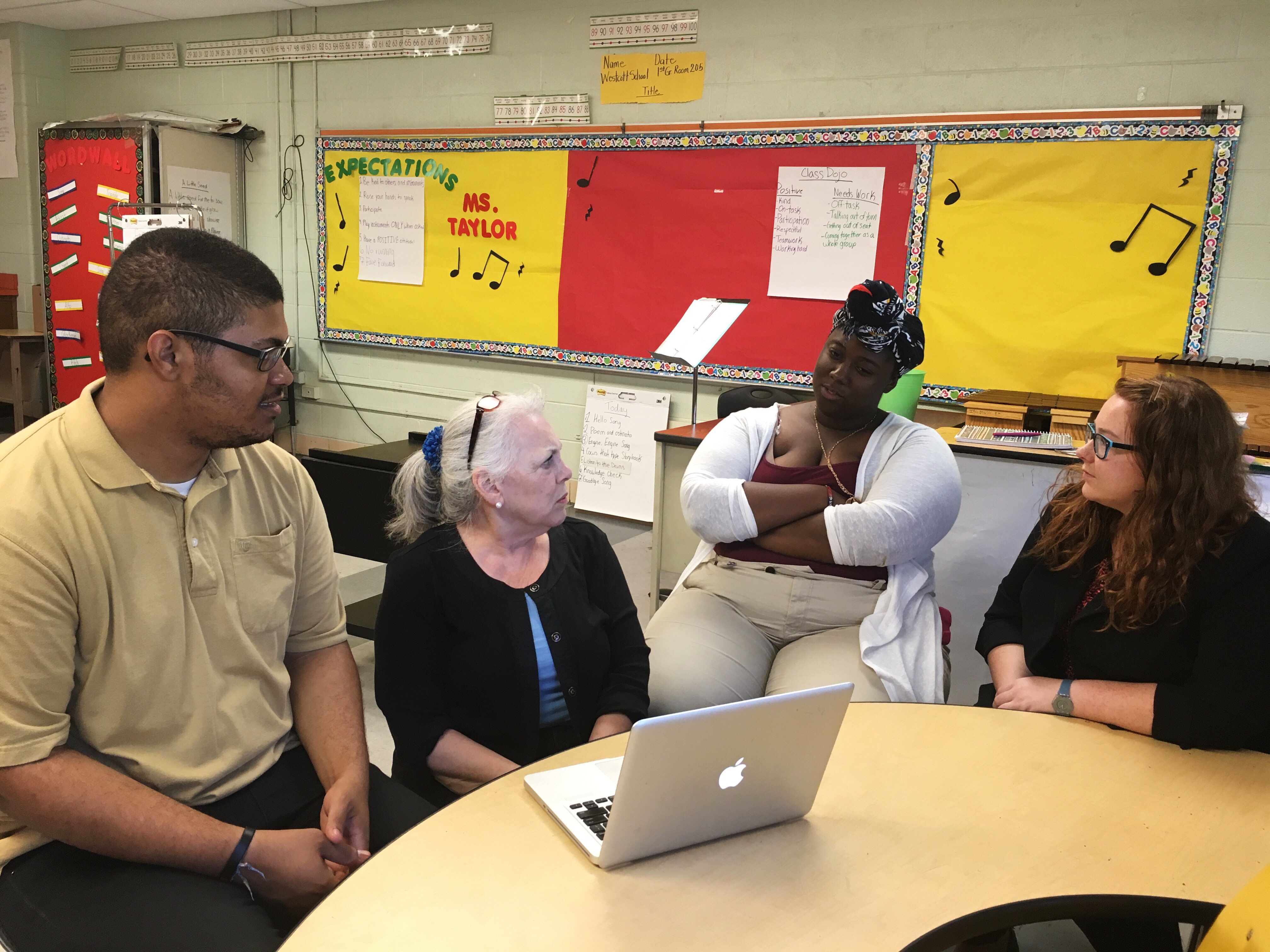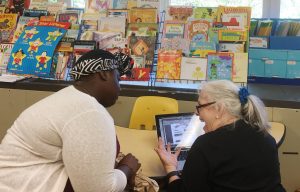During the last four weeks I’ve had the pleasure of working with preservice teachers during Chicago Teacher Education Pipeline’s STEP-UP summer immersion fellowship. These STEP-UP fellows spend four days per week co-teaching in summer school classrooms or camp settings. It has been enlightening as the fellows prepare for the noblest of professions, educating our young. I see them excited about making their mark on the future.
Once per week I visit these enthusiastic college students and watch them teach and interact with students. During my observation I take notes and complete a reflection log. The log is designed to emphasize the Charlotte Danielson Framework for Teaching. We concentrate on Domain I: Classroom Environment and Domain III: Instruction. The Danielson framework is used as an evaluation tool for teachers in CPS and all over the state.
Following my visit, I share the reflection log with the preservice teachers. We discuss what went well and what can be improved upon. We set short-term goals to complete for my next visit.
The reflection log is a useful tool, but our one-on-one conversations are most valuable to both of us. The discussions afford the opportunity for me to explain the importance of classroom management, maximizing instructional time, lesson prep, and a host of other skills and strategies related to teaching and learning.
Occasionally, the opportunity presents itself for me to share the fact that not all teachers are good role models. Observing teachers that may employ practices that are in conflict to what the fellows have learned thus far about sound teaching practices can also be helpful. It’s an opening to discuss what works and what does not. It’s an opportunity for reflection and for them to say to themselves, “When I am a teacher I will not do that.”
Our discussions give me the chance to convey to them how significant their role is as an educator. I tell them that when they are teaching, it is the only time their students will be in second grade, sixth grade, or freshman biology. It’s the teacher’s responsibility to make that important year count for each and every one of their students. The STEP-UP fellows can’t learn too soon the importance of teaching our youth and the weighty responsibility it commands of the teacher.
The fellows’ enthusiasm and excitement is contagious. Their dedication to making a difference in the lives of their students is evident in both watching them teach and speaking with them about students and their teaching. Having spent decades as an educator, it is heartening to see these young people eagerly pick-up the baton.
These preservice students have come a long way in four short weeks. Through self-reflection they’ve already started a list of things they will do and not do when they have their own classroom. They understand first-hand that teaching is not easy; it’s challenging and no two days are the same. But the rewards are well worth it.


